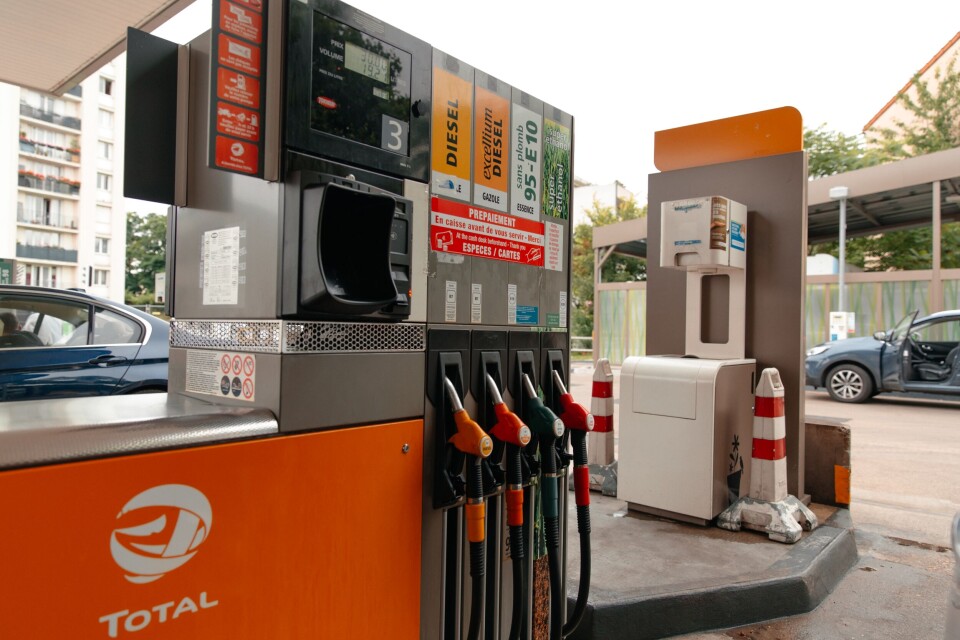-
La Voie Bleue: European Cycle Route of the Year is in France
700km bike path linking Luxembourg and Lyon has been crowned winner of the 2026 title
-
Before and after: Garonne river floods in south-west France
Satellite images show extent of flooding from back-to-back storms in February
-
Home insurance increases expected in France after floods
Compensation costs for the recent storms and flooding across the west and south-west is estimated to be in the billions of euros
Experts on why France is bucking EU trend of falling petrol prices
The current price of Unleaded 95 in France is around 6% more expensive than before Russia invaded Ukraine

Petrol prices in France are still higher than before the war in Ukraine despite falls in many other European countries.
On average, the current price of Unleaded 95 in France is among the most expensive in the European Union, at almost €1.90 per litre, according to figures from the Ecological Ministry.
This is around 6% more expensive than before Russia invaded Ukraine (which caused prices to rise in the immediate aftermath).
It is also considerably higher than the average price of €1.79 across the Eurozone overall, show figures published by the European Commission.
Without taxes, the price in France is €0.90 per litre, compared to €0.79 in Italy, and €0.86 in Spain.
Why is this? Experts have suggested a number of reasons.
Read more: Petrol prices remain high in France despite drops in many EU countries
Strike backlash
Petrol prices in France have been affected by the aftermath of the strikes against the pension reforms, claimed Francis Pousse, president of the professional service station union Mobilians.
He told La Dépêche that “the blocking and closure of refineries” had forced the country to buy fuel from outside France.
He said: “Usually, we are self-sufficient when it comes to unleaded fuel. But in this social context, we had to find it from elsewhere. At which point we are required to accept the price set by suppliers.”
This view was echoed by Olivier Gantois, president of the petrol union UFIP (Union française des industries pétrolières) Énergies et Mobilités.
He told AFP: "In March, we had extra distribution costs when the refineries were shut down because fuel had to be sought from elsewhere to supply the service stations.”
However, Mr Gantois said he was not sure if this factor was continuing to be an issue.
He said: "For several weeks now, the refineries have been restarting, so I don't think that these additional costs are entirely linked to the strikes.”
Read also: Updated: Dates and sectors of upcoming pension strikes in France
Biofuel consumption
Drivers in France use proportionally more SP95-E10 than in other countries. This fuel contains 8 to 9% biofuel and the price of this has skyrocketed in recent months.
"In France, we have 8 to 9% biofuel in both petrol and diesel,” said Mr Gantois. “As a result of the war in Ukraine and the tensions in the agricultural market, the price of agricultural goods has risen considerably.”.
Read also: Reduce flights and impose curfews at French airports, urge campaigners
Energy saving certificates
Energy saving certificates (CEE) could offer another explanation for the extra cost of petrol in France.
This is a French environmental scheme, which levies a tax on petrol, paid by the oil companies. This is intended to force “the fuel distributor to make its customers save energy”, said Mr Gantois.
Yet, this tax has recently been increased by 2 cents per litre, said Mr Pousse, which has "inevitably been reflected at the pumps”.
Seller margins
The last piece of the puzzle could be the margins being made at the pumps by the distributors - mainly supermarkets with petrol stations.
Dominique Schelcher, the head of Système U - which has the highest number of supermarket petrol stations of all the major distribution brands - told BFMTV that some of the price hikes were due to the "reconstitution of margins" by the supermarket chain.
It is no longer trying to drive down fuel prices in its service stations, he said, partly as a means to recuperate losses due to rising prices.
Consumer association CLCV (Consommation Logement Cadre de vie) on Wednesday (May 10) denounced what it called ‘explosive margins’ among distributors, especially for Unleaded 95 and diesel.
It threatened to consult “relevant authorities” about the situation “if the margins do not come back down to normal by summer”. It said that “distributors have been taking very high margins for the past four months…to recoup the losses” of the second quarter of 2022.
And despite earlier comments from Mr Schelcher, FranceInfo said that when it questioned representatives from Intermarché, Leclerc, and Système U, they said the high prices were due to the fuel companies.
One representative said that the sector has “no interest in making margins on fuel because it is a product that attracts customers to the supermarket”. They refuted the idea that there was any kind of margin-increase agreement, and said that “on the contrary, competition is strong on the ground”.
Read also
TotalEnergies to cap fuel prices rather than offer discounts in France
























